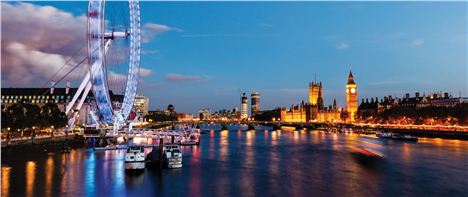FEWER than one in 10 people in Liverpool believe London has a positive impact on the city’s economy or that Whitehall and Parliament care less about the issues faced on Merseyside.
That is one of the startling conclusions today in report by the think-tank Centre for Cities.
The report finds Liverpudlians are among the most disaffected in the UK - along with people in Hull, Sheffield and Glasgow - when it comes to their view of how the capital views the provinces.
Those single-digit results compare with the 24 per cent nationally who believe London has a positive effect on their local economies.
Negative
A YouGov poll, commissioned by the Centre for Cities think tank, surveyed people across 16 major UK cities to ask how they feel the capital affects their lives.
The joint project, with Centre for London, and supported by Lloyds Banking Group, found the further you go north the more negative the opinion becomes about the relationship with London.
Centre For Cities called on the Government to devolve more powers and freedoms to cities so that they can take on more prominent economic, political and cultural roles.
The joint project with Centre for London, supported by Lloyds Banking Group, found that contrary to David Cameron's assertion that “we are all in this together” the British public does not feel that the UK is a “one nation economy”.
And the further north you go the more scepticism there is.
Across the UK, only 17 percent of people believe London civil servants and politicians are responsive to issues in their own city. But in this regard Liverpudlians are the least convinced of all (eight percent).
 London
London
However, bucking that northern trend is Manchester. Just 35 miles up the road, the view is a world apart. There more than a fifth of those polled (21 percent) say that Whitehall and Parliament are responsive to the issues in the city, while 18 percent felt London benefited its economy.
"This could reflect the fact that Manchester has a long history of strong leadership and relationships with Whitehall and as a result has more powers, funding and flexibilities to grow and shape the city,” the report's authors say.
“Manchester’s recent City Deal and the continuous growth of its tram network, for example, demonstrate how city leaders have worked alongside government in London to drive change and support the economy in Manchester.”
Mayors
It also pointed to the strong city region partnership Manchester has in working between 10 local authorities) as contributing to additional investment and growth.
In other areas, 63 per cent of people in Liverpool thought London would be a poor place to bring up a family. But only three per cent thought schools here are much better than London.
As to leadership, only 11 per cent of respondentsin Liverpool thought having a mayor was "very beneficial" to the city's fortunes.
And despite the BBC's move to Salford, national coverage of news stories and cultural events tends to be regarded as London-centric. Ironically even the report describes it as ‘Salford in Manchester’.
The report counter’s David Cameron's assertion “we are all in this together” with the vast majority of Brits not sharing the Prime Minister’s view of the UK as a “one nation economy”.
 Liverpool
Liverpool
As you would expect, cities closer to have a much more positive view of their relationships with London. Once that invisible border, known as north of Watford Gap, is navigated, things change, and in Liverpool the change is staggering.
The report provides further confirmation that London and the expanding South East is like a runaway train – leaving the big northern cities behind.
Centre for Cities have called for a domestic version of the government agency UKTI to foster better trade links across the country, including more trade from other cities, such as Liverpool, into London and vice-versa. UKTI facilitates closer business ties between the UK and overseas markets.
There is also a call for business and city leaders in provincial cities to work within their own regional networks.
“There is often too little knowledge, communication or strategy between nearby cities. Some of the cities seem more clued in to what is going on in London that what is going on with their neighbour,” says the report.
Despite the growing north-south divide, London still beckons, with more young people setting their sights on careers in the capital.












